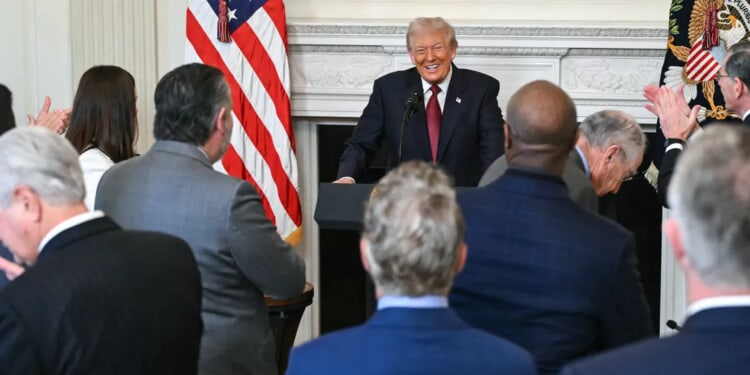The message from Tuesday’s election was unmistakable: Americans are fed up with the soaring cost of living and Washington’s failure to take it seriously. In recent polling, roughly 40 percent of voters say affordability — from housing and groceries to utilities and healthcare — will be the deciding factor in how they vote. Meanwhile, nearly three in four adults describe the U.S. economy as only “fair” or “poor,” citing higher prices and daily expenses as their top concern.
For President Trump and Republicans, the implications are urgent. A party once seen as the guardian of economic prosperity is now at risk of losing that mantle. Voters feel financially squeezed, believe Washington is out of touch, and are demanding action — not talking points. With midterms ahead, Republicans have a narrow window to prove they understand the daily financial strain facing American families. (RELATED: Top Trump Advisor Admits GOP Fumbled Tuesday Elections, Must Focus On Affordability For 2026)
There is one clear path: Congress should move swiftly to pass a second reconciliation bill squarely focused on lowering costs for working Americans. The centerpiece of that package should be a temporary suspension of the payroll tax.
The payroll tax — levied on employees and employers alike to fund Social Security and Medicare — is among the most burdensome taxes facing workers and small businesses. Since 1955, the combined payroll-tax rate has nearly quadrupled, rising from about 4 percent to 15.3 percent today. Nearly 70 percent of taxpayers now pay more in payroll taxes than in federal income taxes, and the typical worker pays almost twice as much in payroll taxes as in income taxes.
A temporary payroll-tax suspension would immediately put more money in workers’ pockets and reduce labor costs for businesses — providing relief in weeks, not years. For small firms operating on thin margins, and for families confronting high rents, grocery bills, and energy costs, that matters.
Moreover, payroll-tax relief is simple, direct, and easily understood — unlike complex tax credits or regulatory incentives. It appeals across demographic lines, especially to working-class and middle-income voters who feel the squeeze most acutely.
This is not a novel idea. Former President Barack Obama supported a payroll-tax cut during his first term. In 1990, Republican Sen. Bob Kasten joined Democratic Sen. Daniel Patrick Moynihan to champion payroll-tax relief backed by both the National Federation of Independent Business and the AFL-CIO — a rare coalition of Main Street and labor.
And the economic evidence is compelling: when the payroll tax was reduced in 2011, roughly 35 cents of every dollar in tax relief was spent by consumers — a significant stimulus effect. In some economic models, a broad payroll-tax suspension could boost GDP by up to about one to two percentage points over a near-term horizon. (RELATED: FDNY Commissioner Robert Tucker Quits Hours After Mamdani Wins Mayoral Election)
Critics warn that suspending the payroll tax would temporarily increase the budget deficit or affect Social Security’s finances. Those concerns are overstated. A time-limited holiday would not meaningfully threaten long-term solvency, and Congress can backstop trust-fund revenue during the suspension with the revenue raised from the Trump tariffs. The far greater fiscal danger lies in allowing a cost-of-living crisis to persist, choking growth and consumer confidence.
The political stakes could not be clearer. In races across the country this year, candidates who prioritized affordability — such as New York Mayor-elect Zohran Mamdani and Virginia Governor-elect Abigail Spanberger — prevailed by speaking to voters’ economic anxiety. In New York City, exit polls found that seven in ten voters viewed housing costs as a major problem. Nationally, cost-of-living eclipses every other issue.
Republicans cannot afford to wait for the Federal Reserve to act or economic conditions to self-correct. They need bold action that Americans feel in their paychecks — now. A payroll-tax holiday, enacted through a second reconciliation bill, would show voters that Republicans are serious about reducing costs, boosting wages, and supporting small businesses. If Congressional Republicans do nothing, they risk being punished in next year’s mid-term elections. The time to act is now.

















